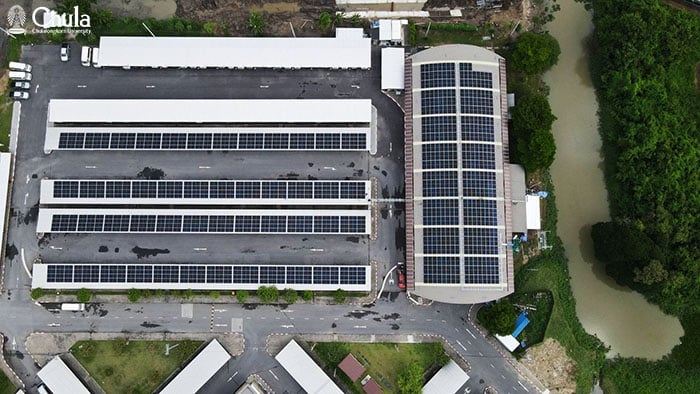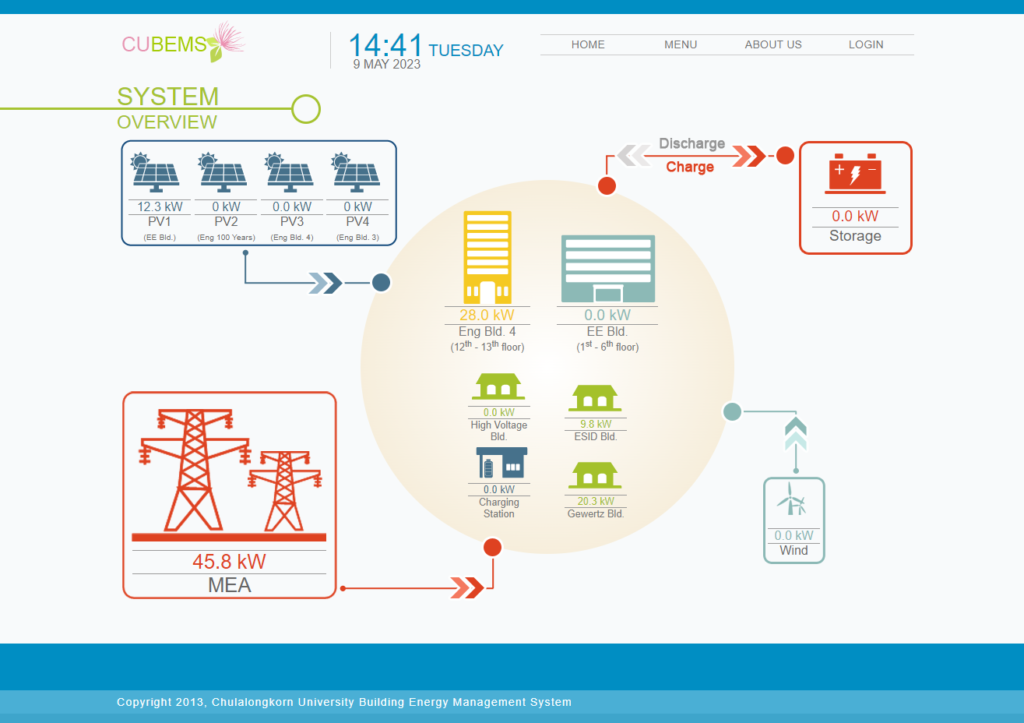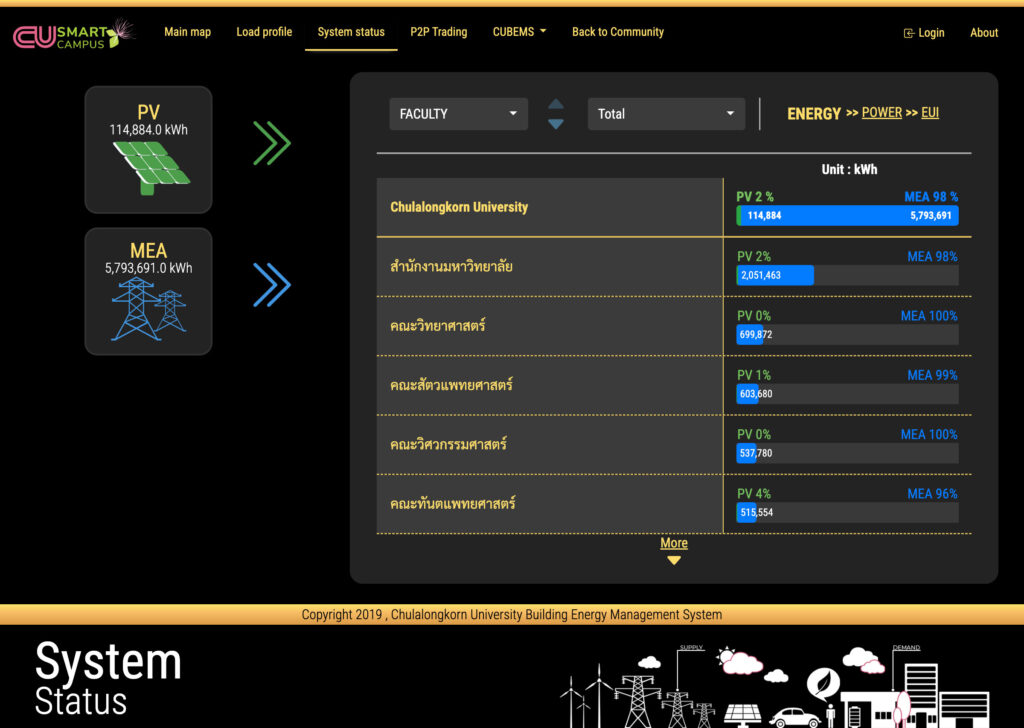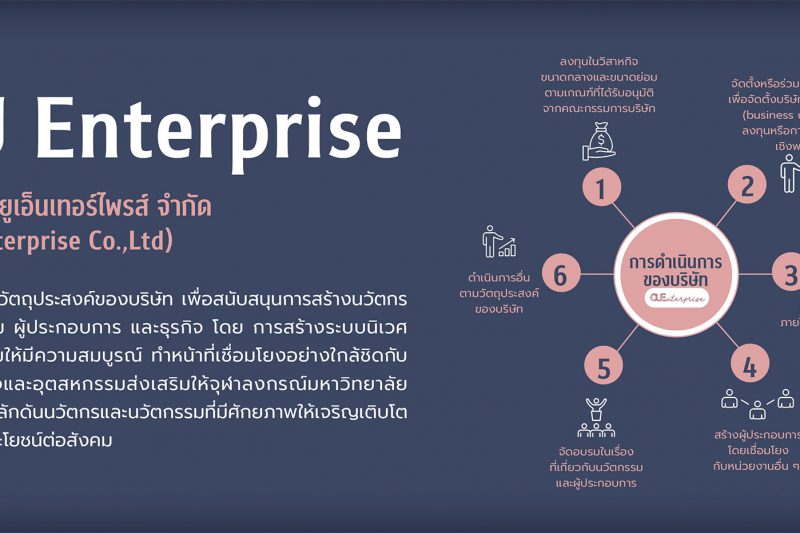Chulalongkorn University Building Renovation Project and Technology for Efficient Energy Use
To support the Sustainable Development Goals (SDG) in the field of energy, Chulalongkorn University has implemented projects and plans to continuously enhance energy efficiency in existing buildings. Additionally, several technology development initiatives have been introduced to support efficient energy management.
Examples of Projects and Plans for 2023-2024:
1. Chulalongkorn University has shifted from traditional energy systems to renewable, zero-carbon energy sources, such as solar energy (Solar PV development).
“Given the urban location of Chulalongkorn University, space constraints make solar energy the most suitable renewable energy source for the university,” explained the project lead.
The university has signed an agreement with the Metropolitan Electricity Authority (MEA) to pilot a solar rooftop project, aiming to install solar panels on 65 buildings across campus. Currently, 14 buildings have completed installations, with the entire installation projected to be finished by the end of 2023.
“Once fully implemented, these installations are expected to offset 25% of the university’s electricity consumption.”
In addition, Chulalongkorn University emphasizes green building design, focusing on constructing new buildings with layouts and orientations that maximize natural light to reduce electricity use. [ https://www.chula.ac.th/highlight/116277/ ]
2. Chulalongkorn University assesses the efficiency and lifespan of electrical equipment, replacing existing lights and air conditioning units with energy-saving models in common areas.
Air conditioning systems have been upgraded with monitors to check for heat levels, ventilation, and cooling, along with CU BEMs (Building Energy Management) systems installed in buildings to monitor, control, and optimize energy usage. This system, designed by Chulalongkorn University’s Smart Grid Research Unit (SGRU) in collaboration with the University of Tokyo and industry partners, is funded by the Energy Conservation Fund (ENCON Fund) of Thailand’s Ministry of Energy. It monitors peak load energy data and carbon emissions, allowing real-time management via web applications and dashboards.
3. Energy Research Institute, Chulalongkorn University recognizes that for Thailand to develop sustainable smart cities, a centralized platform for data collection and comprehensive smart city management is essential.
To this end, the university aims to create a CU Smart City Platform under the “SMART 5” vision. This initiative includes the installation of sensors, meters, IoT devices, and other smart technologies to foster an eco-friendly environment, particularly through rooftop solar power and demand-responsive electricity management within buildings.
In addition to the energy management system, the CU Smart City Platform will integrate with intelligent environmental, transportation, and security management systems to create a smart community on campus. The project commenced at the end of 2023, with an expected outcome in 2024 of a fully operational Smart University Platform under the “SMART 5” vision, covering 100% of university departments with comprehensive data.
By
- Office of Physical Resources Management, Chulalongkorn University
- Faculty of Engineering, Chulalongkorn University
- Energy Research Institute, Chulalongkorn University
Others








